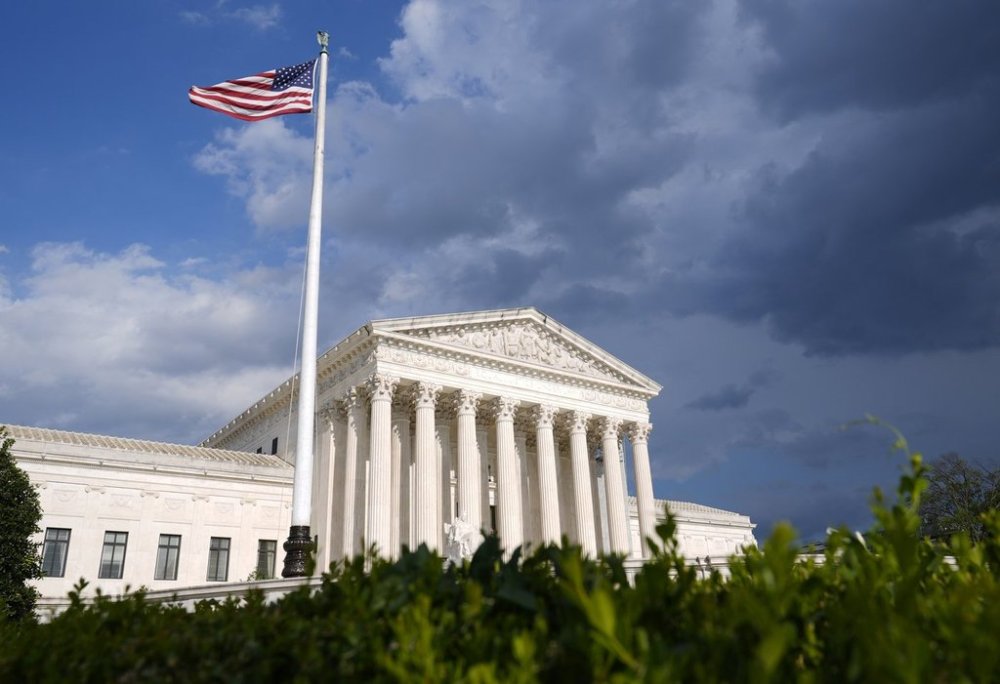The Supreme Court begins a term that will examine Trump’s expansive claims of presidential power
Advertisement
Read this article for free:
or
Already have an account? Log in here »
To continue reading, please subscribe:
Monthly Digital Subscription
$0 for the first 4 weeks*
- Enjoy unlimited reading on winnipegfreepress.com
- Read the E-Edition, our digital replica newspaper
- Access News Break, our award-winning app
- Play interactive puzzles
*No charge for 4 weeks then price increases to the regular rate of $19.00 plus GST every four weeks. Offer available to new and qualified returning subscribers only. Cancel any time.
Monthly Digital Subscription
$4.75/week*
- Enjoy unlimited reading on winnipegfreepress.com
- Read the E-Edition, our digital replica newspaper
- Access News Break, our award-winning app
- Play interactive puzzles
*Billed as $19 plus GST every four weeks. Cancel any time.
To continue reading, please subscribe:
Add Free Press access to your Brandon Sun subscription for only an additional
$1 for the first 4 weeks*
*Your next subscription payment will increase by $1.00 and you will be charged $16.99 plus GST for four weeks. After four weeks, your payment will increase to $23.99 plus GST every four weeks.
Read unlimited articles for free today:
or
Already have an account? Log in here »
WASHINGTON (AP) — The Supreme Court on Monday began a new term that will have a sharp focus on President Donald Trump’s robust assertion of executive power.
Pivotal cases on voting and the rights of LGBTQ people also are on the agenda. On Tuesday, the justices will hear arguments over bans passed by nearly half of U.S. states on therapy aimed at changing sexual orientation or gender identity.
Chief Justice John Roberts formally opened the term Monday as the court rejected more than 800 pending appeals, including a challenge by Ghislaine Maxwell to her conviction for luring teenage girls to be sexually abused by Jeffrey Epstein.

In its first arguments, the court also appeared to be inclined to rule against a criminal defendant from Texas in a case about the constitutional right to a lawyer. Approaching an overnight break in the defendant’s testimony, the trial judge ordered defense lawyers not to talk to their client about his testimony.
A major thrust of the next 10 months, however, is expected to be the justices’ evaluation of Trump’s expansive claims of presidential power.
The court’s conservative majority has so far been receptive, at least in preliminary rulings, to many emergency appeals from Trump’s Republican administration. But there could be more skepticism when the court conducts in-depth examinations of some Trump policies, including the president’s imposition of tariffs and his desired restrictions on birthright citizenship.
The justices are hearing a pivotal case for Trump’s economic agenda in early November as they consider the legality of many of his sweeping tariffs. Two lower courts have found the Republican president does not have the power to unilaterally impose wide-ranging tariffs under an emergency powers law.
In December, the justices will take up Trump’s power to fire independent agency members at will, a case that probably will lead the court to overturn, or drastically narrow, a 90-year-old decision. It required a cause, like neglect of duty, before a president could remove the Senate-confirmed officials from their jobs.
The outcome appears to be in little doubt because the conservatives have allowed the firings to take effect while the case plays out, even after lower-court judges found the firings illegal. The three liberal justices on the nine-member court have dissented each time.
Another case that has arrived at the court but has yet to be considered involves Trump’s executive order denying birthright citizenship to children born in the United States to parents who are in the country illegally or temporarily.
The administration has appealed lower-court rulings blocking the order as unconstitutional, or likely so, flouting more than 125 years of general understanding and an 1898 Supreme Court ruling. The case could be argued in the late winter or early spring.
___
Follow the AP’s coverage of the U.S. Supreme Court at https://apnews.com/hub/us-supreme-court.

